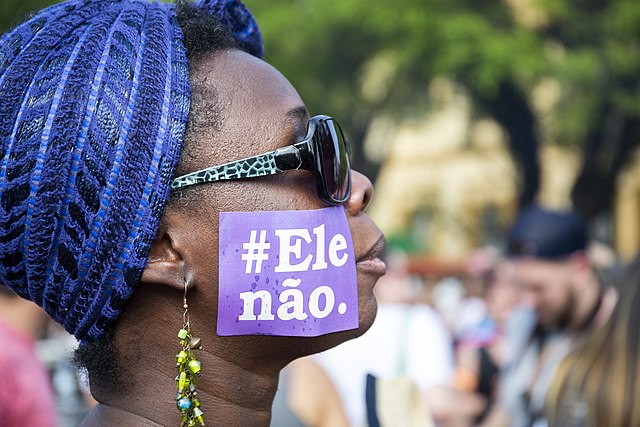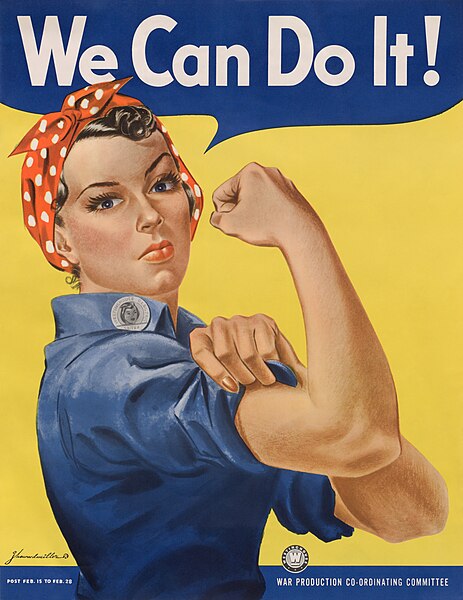Fourth-wave feminism is a feminist movement that began around the early 2010s and is characterized by a focus on the empowerment of women, the use of Internet tools, and intersectionality. The fourth wave seeks greater gender equality by focusing on gendered norms and the marginalization of women in society.
International Women's Day, London, 2017
Protester in Porto Alegre, Brazil, participating in the Ele Não movement
The feminist movement, also known as the women's movement, refers to a series of social movements and political campaigns for radical and liberal reforms on women's issues created by inequality between men and women. Such issues are women's liberation, reproductive rights, domestic violence, maternity leave, equal pay, women's suffrage, sexual harassment, and sexual violence. The movement's priorities have expanded since its beginning in the 1800s, and vary among nations and communities. Priorities range from opposition to female genital mutilation in one country, to opposition to the glass ceiling in another.
The "We Can Do It!" war-propaganda poster from 1943 was re-appropriated as a symbol of the feminist movement in the 1980s.
A YPJ fighter, in November 2014




